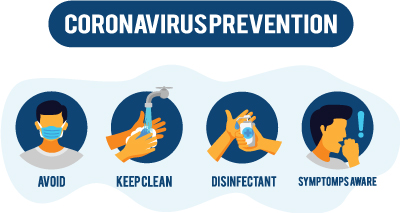Dental Implants: The Best Solution For Replacing Missing Teeth
Most people need dental implants. Statistics tell us that almost 7 in 10 adults between the ages of 34 and 44 have lost at least one permanent tooth due to injury, disease or some other cause. Losing a single tooth may not seem like a big deal, but it can set off a cascade of events that could lead to a drastic decline in oral health in a very short time.
Dental Implants: The Best Solution
Dental implants are the most effective way to stop the progression of tooth loss. How?
- They are set directly into the jaw bone
- They fuse with the jaw bone in a process called osseointegration.
- They prevent further bone loss
- They stabilize the bite
- They are not susceptible to decay
- They look and feel like natural teeth
- They have a success rate of close to 98%
- They can last a lifetime with proper care
Dental Implants: The Cost
No doubt about it, dental implants are expensive. But understand you are buying a service, not a product. The costs vary depending on:
- your location
- who is performing the dental implant procedure
- the number of dental implants needed
- whether or not bone grafting is required
You can replace a single tooth or multiple teeth with dental implants. However, the longer you wait, the more complicated and costly the implant procedure will be.
A conservative cost estimate for a single implant is $3,000-$4,500. This includes the cost of surgery for placement, all the components and the dental implant crown.
Dental implants have become the treatment of choice for missing or failing teeth. Even so, dental insurance considers dental implants a cosmetic procedure. Therefore, dental insurance does not pay for implants typically. Some dental insurance will help pay for the implant crown portion.
Dental Implants: The Possible Complications
Because placing dental implants is a surgical procedure, there are risks and potential complications that must be considered. Dental implant success rate is quite high. Unsuccessful procedures are possible due to:
- Infection
- fracture of the dental implant
- overloading of the dental implant
- damage to nerves, blood vessels and teeth in the surrounding area
- poor positioning of the dental implant
- poor bone quality
- lack of bone quantity
Careful planning and a qualified surgeon can help avoid these problems and an unsuccessful dental implant. As with all surgical procedures, you must be healthy enough to undergo oral surgery and heal properly. Review all medical conditions with your surgeon prior to your dental implant procedure.
If you are missing one or more teeth, it is imperative that you choose to take care of this right now, without delay. Avoid the following major problems associated with tooth loss:
- Migration (unwanted movement) of adjacent teeth
- Bite problems
- Gum disease and tooth decay
- Bone resorbtion (eroding away) under missing teeth
- And more of the same, unless you choose to take care of tooth loss right now
Are you missing teeth? Replace them with dental implants right away! Don’t hide or stifle your smile any longer. Contact SA Family Dental Care at (210) 774-6427. Schedule your consultation with us today.
Resources:
http://www.osseo.org/NEWtoothReplacement.html
http://www.medicinenet.com/dental_implants/article.htm
http://www.dentalimplantcenter.com/faqs.php#q1


 We will be disinfecting all counters, door handle and hard surfaces in the waiting room at regular intervals. Also, we will ask all patients to use disinfection wipes that the front desk team members will provide before signing in and checking out. We as a rule disinfect hard surfaces and equipment in our operatories based on infection control guide lines.
We will be disinfecting all counters, door handle and hard surfaces in the waiting room at regular intervals. Also, we will ask all patients to use disinfection wipes that the front desk team members will provide before signing in and checking out. We as a rule disinfect hard surfaces and equipment in our operatories based on infection control guide lines. Please keep your regular dental appointment if you are not ill or have not come into contact with ill patients.
Please keep your regular dental appointment if you are not ill or have not come into contact with ill patients.